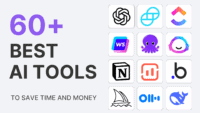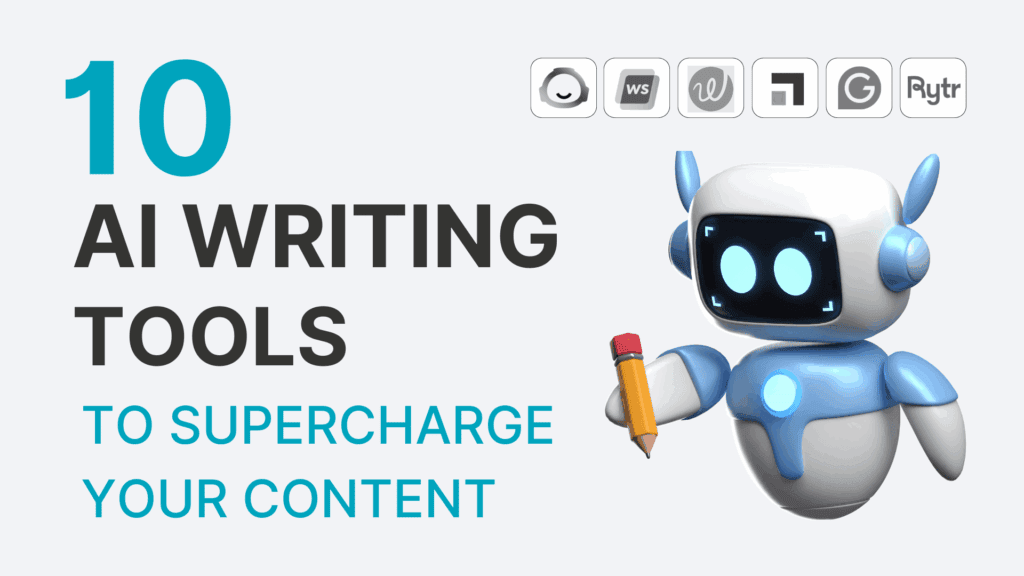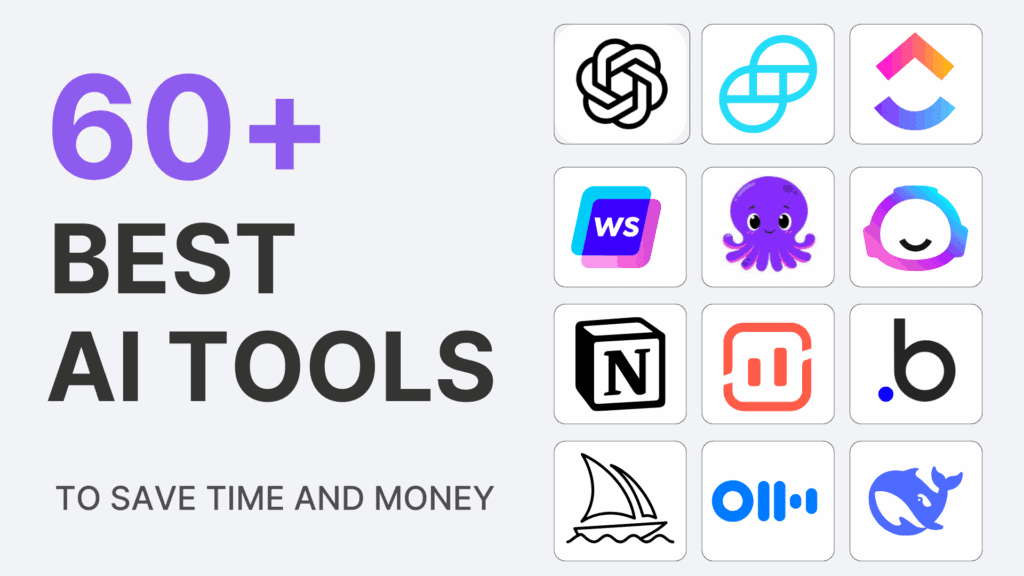This comprehensive guide serves as your roadmap, offering insights not only into the multifaceted role of an affiliate program manager but also into how to thrive in it. We will delve into the most common skills, industry certifications, and cutting-edge tools and technologies that can empower you to excel. Whether you’re a seasoned professional seeking to refine your abilities or a budding affiliate manager taking your first steps, explore the strategies and knowledge needed to build the skillset to drive incremental results for brands and merchants’ programs.
Affiliate Management – scope of activities
Affiliate marketing managers handle all aspects of the affiliate program for the merchant/advertiser. Their responsibilities include strategy and goal setting, finding and recruiting affiliates, setting affiliate commission rates, managing pay-outs, monitoring performance and key affiliate KPIs, optimizing the program, and keeping affiliates engaged and motivated. Let’s break that down;
- Audit existing affiliate programs
- Strategy, budget, and goal setting
- Select affiliate networks
- Set up affiliates’ commissions, terms and conditions, reporting
- Setup the program, event tracking, commission payouts, terms and policies
- Find, recruit, and activate new and dormant Affiliates
- Maintain communications, creative assets, and promotions
- Negotiate and incentivize affiliates through optimization and retention campaigns
- Troubleshoot tracking and payout issues
- Monitor performance and fraud
- Scale affiliate programs using growth strategies
Managing a program requires time, a specific skillset of expertise, and excellent project management skills; you are leaving money off the table if you leave your program on auto-pilot.
A proactive management of a merchant’s affiliate program and a proper investment in the channel can supercharge the advertiser’s sales, uncover new audiences to tap into, protect margins, build your brand, and set your client/the merchant for success.
Affiliate management: in-house vs. specialized agency
For commerce and companies expanding their business to affiliate and partnership marketing, there are 2 work setting options for affiliate marketing managers:
- Working in-house at the company or as the dedicated affiliate management team
- Working as an outsourced partner in a specialized agency
Hiring an in-house affiliate manager
If you are an affiliate manager working in-house or if you are looking to shift your digital career to become an affiliate manager, you probably know that hiring the right in-house manager takes time, investment in training (which we are happy to provide you with through this course), and finally, proper affiliate management tools.
- A successful affiliate program requires time and dedication. Companies will usually opt-in for assigning a dedicated manager to set up, manage, optimize, and grow the program and have better control over the strategic planning and direction the program will go.
- The decision-making process is much faster when managing a program in-house; day-to-day activities require vetting applications, adjusting/ increasing partner commissions, creating new banners or affiliate promotions, or investing in media buys into the program.
- In-house affiliate managers are part of the bigger business and marketing planning picture. While they are dedicated to growing the program, they have access to other marketing experts to work on holistic media and performance marketing plans.
Unless assigning a senior affiliate manager to manage your program in-house, it may take time for the manager to establish relationships with partners and quickly grow the program. Specifically, if companies decide to host the program internally, they won’t take advantage of what affiliate networks and technologies offer.
Outsourced an affiliate agency or a freelancer
If companies do not have the expertise, skills, or resources to manage their affiliate program effectively in-house, outsourced program managers (OPMs) usually working in a specialized media or Affiliate agency or freelancing services, is the best approach.
- More efficient resources highly trained or specialized in the channel. Affiliate managers in an agency usually manage more than one account and have established relationships with publishers to maximize program negotiations, placement opportunities, and cost efficiencies.
- The agency often invests in a range of technologies and tools to facilitate program management and tracking capabilities and has access to discounted rates for merchants with many affiliate networks.
- OPMs and agencies usually recruit experienced affiliate managers with industry and specialization experience. They worked on other affiliate programs in the clients’ industry, already have a deep understanding of the opportunities and challenges of the market, and have relationships with affiliates, influencers, and publishers they can leverage to quickly ramp up merchants’ affiliate programs.
- Agencies specialized in affiliate marketing may be completely separated from your overall business strategy; this can create silos and impact your program growth. Outsourced affiliate management services can be costly and require a skilled account manager or in-house marketing professional to manage the relationships, provide assets, schedule regular communication and meeting cadences, and be responsive enough to work with outsourced management partners.
We did a recap of the pros and cons of working in-house vs. in a specialized agency. There are seven key factors to consider such as industry knowledge, time and efficiency, business strategy, accountability and control, resource allocation needs, existing affiliates’ relationships, and of course cost associated.
| Criteria | In-house manager | Specialized agency |
|---|---|---|
Industry Knowledge | Knowledge of the industry from a trend, market demand, offer, and direct competition perspective | Knowledge of the partnership ecosystem and trends in your industry |
Time & Efficiency | May take longer to grow a program in a profitable way | Day-to-day activities, partner recruitment, and strategy quickly put into place |
| Business Strategy | An integrated part of the marketing team working towards common OKRs and goals | Siloed and less cohesive approach and disconnect can happen when outsourcing the program to an external agency. |
Accountability & Control | Direct access to decision-makers for strategic planning and budget and creative needs. | Approval process and workflow for any changes in budget, strategy, and creative asset creations. |
Resource Allocation | May require time to train and find the right talent and skillset to manage the program | More efficient resources highly trained or specialized in the channel |
| Affiliate and Partner Relationships | May be limited and require time to build | Significant established connection with top partners |
Cost | Salary + benefits + Bonuses | Retainer with performance bonus option |
Regardless of hiring in-house or outsourcing management, we recommend investing in hosting the program with an affiliate network – offering robust tracking and reporting capabilities as well as all the tools, and certifications for your manager to create successful affiliate recruitment and management plans to profitable scale.
The market and demand for affiliate program managers
The role of an affiliate marketing manager not only promises a competitive salary but also presents numerous opportunities for career growth. With the potential for salary increases based on location and a favorable job market outlook, pursuing a career as an affiliate marketing manager can be a rewarding and financially fulfilling choice for individuals with the right skills and qualifications.
Salary insights
Aspiring affiliate marketing managers have a promising financial outlook, with the potential to earn a substantial income. According to recent data, the national average salary for affiliate marketing managers stands at approximately $72,960 per year, equivalent to an hourly rate of $35. However, this figure isn’t static and can fluctuate significantly based on several factors, such as location.
Location
For instance, individuals working remotely in the affiliate marketing field can expect a salary range between $42,000 and $96,000 annually.
In cities such as Los Angeles (CA) and Washington (DC), which are among the top 10 cities with average salaries higher than the national average, affiliate program managers can earn as much as $85,000 per year. This highlights the importance of considering your geographic location when pursuing a career in affiliate marketing management.
Affiliate job growth rate
The future for affiliate marketing managers appears promising in terms of job growth. The profession boasts a steady growth rate of 8%, and experts predict that this figure may increase to 10 -15% between 2023 and 2030. This equates to an average of 31,000 job openings becoming available each year within the field.*
*Source US Bureau of Labor Statistics
The upward trajectory in job opportunities underscores the increasing demand for skilled affiliate marketing managers who can navigate the evolving landscape of digital marketing. It is an exciting time for those considering a career in affiliate marketing management, as the industry continues to expand and offer substantial income potential.
Learn more about the Affiliate Marketing – 2024-2030 Market Growth and Trends Outlook
Career paths and progression for affiliate managers
Affiliate Managers can work in-house for the brands or advertisers, but they can also accelerate their careers if they decide to work in an agency setting or for an affiliate network.
Also, Affiliate marketers can join top media publishing companies such as Hearst, Dot Dash, or Conde Nast publications to build and manage relationships with brands and merchants, working in the commerce content division of these groups.
Affiliate managers can also choose the path to become affiliate marketers, also called affiliate publishers, and promote products and services they know, love, and test on behalf of a brand and get compensated for it. For this path, we recommend focusing on building an audience by creating content that you will monetize through affiliate partnerships with brands and merchants.
The career path is not linear and offers many ways to start or grow a successful career in the affiliate and partnerships space.
Affiliate managers have diverse and wide-ranging career paths. As they gain experience and achieve success, they can progress to more senior roles or even executive-level positions, such as Senior Director of Marketing or Director of Marketing and Business Development.
The experience gained as an affiliate manager can also inspire some professionals to venture into entrepreneurship. Armed with industry insights, a strong network of affiliates, and a deep understanding of market demands, they might decide to launch their own affiliate marketing agencies or even create innovative affiliate-driven startups.
Path 1: Staying within the affiliate industry and climb the corporate ladder
1. Entry-Level Affiliate Coordinator (Entry-level – 0 to 2 years)
Responsibilities include assisting senior affiliate managers, monitoring affiliate partnerships, and analyzing campaign performance.
2. Affiliate Manager (2 years of experience)
Takes charge of managing the company’s e-commerce affiliate program or managing several accounts in an agency, negotiates with partners, and implements new strategies to boost affiliate sales.
3. Senior Affiliate Manager (3 to 7 years of experience)
Oversees a team of junior affiliate managers, sets ambitious revenue targets, and collaborates with cross-functional teams to optimize affiliate campaigns.
4. Affiliate Marketing Director (7- 9 years of experience)
As an Affiliate marketing director, spearheads global affiliate programs, sets long-term growth strategies, and plays a significant role in marketing decisions.
5. Vice President, Affiliate and Partnerships (10 -15 years)
Oversee all marketing initiatives, including affiliate programs, and contribute to the company’s overall strategic direction.
Path 2: Diving into the affiliate management specialization
Another option is if you are shifting direction in your career and you are looking to build your skill set, knowledge, and experience in the affiliate marketing space to successfully transition from a generalist digital marketing role to an affiliate manager one, whether working in-house in a company or joining an agency specialized in affiliate marketing.
If you choose this path, below is the most common path to shift to this career path and grow within the specialization;
From generalist media & marketing roles
- Digital marketing strategist
- Digital marketing manager
- Affiliate management manager
- Grow from manager to VP within the affiliate space
Path 3: Setting up your affiliate management practice
Transitioning from a generalist marketing background to establishing your own affiliate marketing practice or agency is an exciting journey that requires a strategic approach. Begin by leveraging your existing marketing skills and knowledge as a strong foundation. Focus on building expertise in affiliate marketing by staying updated on industry trends, attending relevant workshops or courses, and networking with seasoned professionals.
To become your own boss, consider freelancing as a starting point. Work on small affiliate projects, gain experience and build a portfolio. As your expertise grows, you can begin attracting more clients and eventually establish your own agency. Building an agency involves scaling your operations, hiring skilled team members, and effectively managing client relationships.
Embark on an entrepreneurial path and establish your own affiliate marketing agency, attracting clients from various industries and leveraging her extensive network of affiliate partners to deliver exceptional results.
Where to get started to apply for an affiliate manager role?
To get started on your journey to apply for an affiliate manager role, you should consider the following methods:
- Indeed
- ZipRecruiter
- Referrals and your own network
- Direct application to companies
Remember to tailor your application materials, such as your resume and cover letter, to each position you apply for. Highlight your relevant skills and experiences, and be prepared to showcase how your background in marketing aligns with the responsibilities of an affiliate manager. Additionally, stay proactive in your job search, follow up on applications, and continue to expand your knowledge and network in the affiliate marketing industry to enhance your job prospects.
The most common skills of an affiliate program manager
Affiliate program managers should be able to speak about results, wins, challenges, and new opportunities, whether for themselves, reporting to their boss, or during weekly meetings with other account managers. They are usually organized and possess excellent project management skills to source, engage, write emails, call potential partners, follow up regularly, address questions and concerns, and accept rejections.
Hard skills
- Affiliate Marketing: A deep understanding of affiliate marketing principles is essential. This includes knowledge of affiliate networks, tracking systems, commission structures, and recruitment strategies.
- Digital Marketing: Affiliate program managers need a strong understanding of digital marketing strategies to effectively promote products or services through affiliates. This includes knowledge of online advertising, content marketing, email marketing, and social media marketing.
- SEO (Search Engine Optimization): Knowledge of SEO techniques is crucial for optimizing affiliate content and ensuring that it ranks well in search engines, increasing visibility and traffic.
- Performance Marketing and CPA (Cost Per Acquisition) Management: Affiliate program managers must be skilled in managing the financial aspects of affiliate marketing, including setting and optimizing CPA targets to ensure profitability.
- Business Development: Building partnerships with new affiliates and advertisers is a critical skill. This involves identifying potential partners, negotiating contracts, and expanding the affiliate program’s reach.
- Customer Service: Excellent customer service skills are needed to address affiliate inquiries, resolve issues, and maintain positive relationships with affiliates.
- Relationship Management: Building and maintaining strong relationships with affiliates and advertisers is key to the success of an affiliate program. This includes effective communication, negotiation, and conflict resolution.
- Data Analysis: Analyzing affiliate performance data is essential for making informed decisions. Skills in data analytics and reporting are valuable for tracking key metrics and optimizing the program.
- Project Management: Affiliate program managers often oversee multiple campaigns and initiatives simultaneously. Strong project management skills help ensure that tasks are completed on time and within budget.
- Technical Skills: Proficiency in using affiliate tracking software, content management systems, and other technical tools is important for managing and optimizing affiliate campaigns effectively.
Soft skills
- Analytical Skills: Affiliate program managers need to analyze data, assess campaign performance, and make data-driven decisions. Strong analytical skills enable them to identify trends and areas for improvement.
- Communication Skills: Effective communication is crucial for conveying program goals and expectations to affiliates and advertisers. Clear and concise communication fosters collaboration and trust.
- Creativity: Creativity comes into play when designing marketing strategies and promotional materials. Creative thinking helps in crafting compelling affiliate marketing campaigns that stand out in a competitive landscape.
Affiliate program managers who possess these hard and soft skills are well-equipped to develop, manage, and optimize successful affiliate marketing programs that drive revenue and growth for their organizations.
The most common degree & certifications to become an affiliate manager
To become an affiliate program manager, there are several common certifications and degrees that can enhance your qualifications and knowledge in the field. While not always mandatory, they can significantly improve your chances of landing a job and advancing in your career. Here are some of the most common certifications and degrees:
Common Degrees
Bachelor’s Degree in Marketing, Business, or Related Field:
Many affiliate program managers have a bachelor’s degree in marketing, business administration, digital marketing, e-commerce, or a related field. This provides a strong foundational understanding of business principles and marketing strategies.
Master’s Degree in Marketing or Business Administration (MBA):
While not always necessary, an MBA can set you apart and open up higher-level career opportunities. It offers advanced knowledge in business management and marketing.
It is essential for any affiliate marketing strategist and manager to have the most up-to-date certifications within key networks and other media and analytics platforms such as Google.
Certifications
Some organizations and platforms offer specific affiliate marketing certifications. These can be highly valuable as they focus directly on the skills needed for affiliate program management.
Affiliate Industry and Product Certifications
Affiliate industry and product certifications are valuable credentials that demonstrate expertise in various aspects of affiliate marketing. One notable example is the “Impact PXA” certification, offered by Impact, a leading marketing technology company. The Partnership Experience Academy (PXA) by Impact.com offers many courses and certifications designed to equip professionals with the skills and knowledge needed to effectively utilize the Impact Partnership Cloud platform and to learn everything about the affiliate partnership industry. You can then showcase your proficiency in leveraging specialized tools and technologies, which can open doors to exciting career opportunities within the affiliate marketing industry.
Google Ads Certification
Earning a Google Ads certification demonstrates your expertise in online advertising, including pay-per-click (PPC) advertising, which is relevant for managing affiliate programs that often involve online advertising.
Digital Marketing Certifications
Various digital marketing certifications such as Hubspot or SEMRush are available from reputable organizations. These certifications cover a wide range of topics, including SEO, social media marketing, email marketing, and more.
Analytics and Data Certification (e.g., Google Analytics, Data Analytics)
Proficiency in data analysis is crucial for optimizing affiliate programs. Certifications in data analytics tools or platforms like Google Analytics can be beneficial.
Remember that while certifications and degrees can be valuable, practical affiliate management experience and a proven track record in launching, optimizing, and scaling publisher relationships to drive incremental growth for the program are often equally, if not more, important to potential employers.
Therefore, a combination of education, certifications, and hands-on experience can help you excel as an affiliate program manager.
Tools and software for affiliate managers: Building your tech arsenal
The Affiliate Manager Toolbox is an essential component of an affiliate program manager’s arsenal, consisting of various tools and software that facilitate the management, optimization, and growth of affiliate programs. Here’s a breakdown of the mentioned tools and their roles:
1. Semrush / Ahref
Both Semrush and Ahrefs are powerful SEO and competitive analysis tools. Affiliate program managers use them to conduct keyword research, track rankings, and analyze the SEO performance of their affiliate websites. These tools aid in optimizing content and improving organic search visibility, which is crucial for affiliate marketing success.
2. SimilarSites
SimilarSites provides valuable insights into competitor websites and helps affiliate program managers identify potential affiliates or partnerships. It allows for the discovery of websites similar to your affiliates, enabling you to expand your affiliate network strategically.
3. Zoom / Google Meet
Video conferencing tools like Zoom and Google Meet are essential for communication with affiliates, advertisers, and team members. They facilitate virtual meetings, webinars, and discussions, fostering collaboration and relationship management in the digital affiliate space.
4. Loom
Loom is a screen recording and video messaging tool that allows affiliate program managers to create personalized video messages, tutorials, or explanations for affiliates. It enhances communication by providing visual and detailed instructions.
5. Brandverity
Brandverity is a brand protection and compliance monitoring tool. Affiliate program managers use it to ensure that affiliates adhere to brand guidelines and compliance standards. It helps in maintaining brand integrity within the affiliate program.
6. Affiliate Network
Affiliate program managers rely on affiliate networks (e.g., ShareASale, CJ Affiliate, Rakuten Advertising) to connect with a wide range of affiliates and advertisers. These networks offer a platform for tracking, reporting, and managing affiliate relationships efficiently.
7. Influencer Network
Leveraging influencer marketing is common in affiliate programs. Tools that connect with influencer networks enable managers to identify, recruit, and collaborate with influencers to promote products or services effectively.
8. Amazon Network
For affiliate programs that include Amazon products, Amazon’s affiliate network (Amazon Associates) is a crucial platform. Managers use it to generate affiliate links and track sales related to Amazon products.
9. Project Management Tools
Project management tools (e.g., Trello, Asana, or Monday.com) help affiliate program managers plan and organize tasks, campaigns, and projects. They ensure that all aspects of the affiliate program are executed efficiently and on schedule.
10. FMTC (For Me To Coupon)
FMTC is a data feed and coupon aggregator service. Affiliate program managers can use it to access up-to-date coupon codes and deals, which can be a significant incentive for affiliates and drive conversions.
The affiliate manager toolbox comprises a diverse set of tools and software that empower affiliate program managers to excel in their roles. These tools help with SEO optimization, competitor analysis, communication, compliance monitoring, affiliate networking, project management, and more, ultimately contributing to the success and growth of affiliate programs.
Wrapping-up
Affiliate program management is an exciting and in-demand job function that allows working on many aspects of an online affiliate program We’ve taken a closer look at the core responsibilities and daily operations that define this role, gaining a deeper understanding of what it takes to effectively oversee affiliate programs., whether recruiting new affiliates or nurture long-standing relations with key publishers to build incremental growth.
Our exploration into the current market trends and job demand has highlighted the tremendous growth potential and financial prospects that beckon those considering a career in affiliate management.
Whether you aim to specialize, lead a team, or pursue entrepreneurial endeavors, there are many choices and options to consider.
Equipping yourself with the right skill set is paramount. Effective communication, data analysis, and relationship management skills are just a few of the essential qualities that affiliate program managers should cultivate. Staying updated with industry trends and pursuing relevant certifications is key to staying competitive in this dynamic market.
Finally, the importance of your tech toolkit to grow a program cannot be understated. Selecting the right affiliate and digital marketing tools and software can significantly enhance your efficiency, streamline affiliate management tasks, and ultimately elevate the performance of your affiliate program.
Becoming a successful affiliate program manager is a journey that requires commitment, continuous learning, adaptability, and a keen awareness of market dynamics. Armed with the knowledge and insights shared in this article, you are well-positioned to excel and thrive in this exciting and rewarding field.
Success starts with The Good Strategy!












